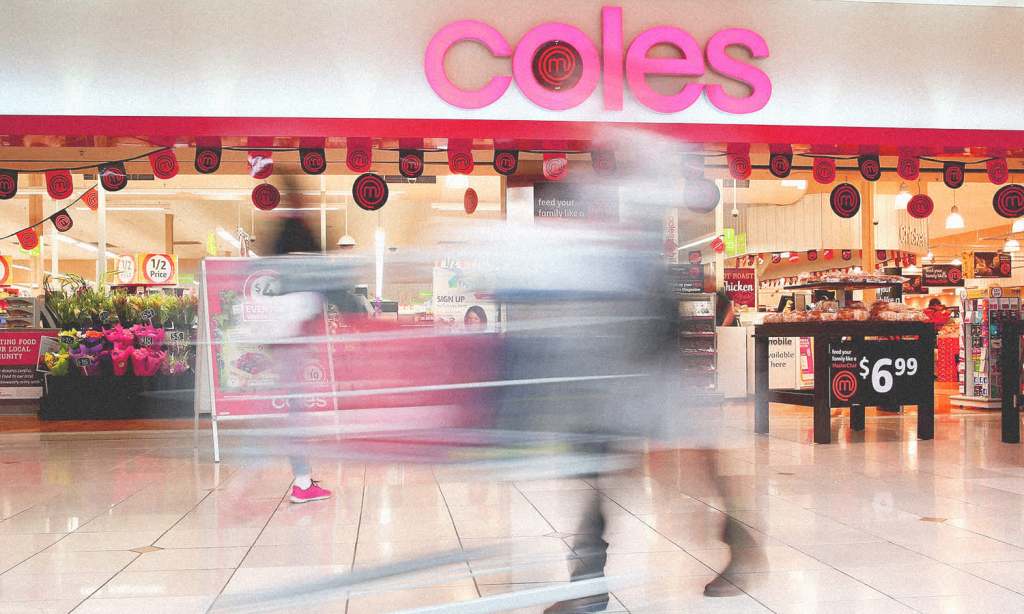Both of Australia’s leading supermarkets have posted billion-dollar profits and shareholder dividends this year, despite suffering from major disruptions caused by COVID, flooding, and employment issues.
Woolworths Group chief executive Brad Banducci said that the $1.5 billion profit posted by the company was “below our aspirations for the year.” It’s a rise of just 0.7% from the previous year.
Their closest rival, Coles, saw profit rise 4.3% to $1.05 billion, beating out expectations for lower growth for the 2021/2022 period.
Both supermarkets were able to pay significant dividends this year, with Woolworths posting cheques of 53c per share to shareholders while Coles investors got 63c per share for their money.
Although economic and environmental disruptions have created a somewhat ‘gloomy’ outlook for the nation’s supermarkets, it’s hard not to wince at the profit figures made by these companies when more and more of us are struggling to complete the weekly shop.
Shelf-price inflation, the cost of things on supermarket shelves, reached 4.3% in the June quarter this year, still below the national inflation rate which has grown to 6.1%.
A recent survey from Finder has revealed that nearly 20% of Aussies are battling with empty bank accounts. 11% have had to abandon their purchase after coming up short at the till, while 8% have had to return items to the shelf in order to pay for their food shop.
According to Finder, grocery bill stress hit a record high in August, with 37% of Australians ranking groceries as one of their top three most stressful expenses.
Coles and Woolworths are seeing these effects in real-time. At the full-year results presentation, Coles chief executive Steven Cain said that shoppers are buying fewer products or opting for cheaper versions.
“Maybe up to 20% of consumers … are obviously finding it tough,” he said.
“For the first time, we’re seeing significant increases in transactions but we’re also seeing reductions in baskets as well.”
Woolworths also said that the cost of living crisis was “beginning to impact all aspects of our customers’ shop and we are seeing a gradual change in customer shopping behaviour”.
“We are seeing some customers trade down from beef into more affordable sources of protein and trade across from fresh vegetables into more affordable frozen and canned offerings.”
Both companies have recently agreed to price freezes, locking in the cost of hundreds of items across their stores in an effort to combat grocery stress. At the same time, suppliers are demanding they increase their spending on goods produced for the supermarket while the chains battle low employee numbers. It seems hard to square these push-pull factors with the profits posted this year, however.
One thing they have both ruled out, which could help with employee retention and the ability for their workers to weather the cost of living storm, is pay further rises. In June, Woolworths granted 145,000 of its 180,000 staff a $40 per week pay rise, while Coles is still reviewing pay increases. This was stipulated under minimum wage rises handed down by the new government but it’s hardly in line with inflation, meaning workers are taking a real-time pay cut.
Richard Denniss, executive director of The Australia Institute, has said in response to the news that Coles and Woolworths don’t want to increase worker salaries because that would cut into profit and shareholder dividends.
“What they say is ‘if we paid our workers more, we would have no choice but to make everybody else’s groceries dearer. We will punish everybody if these workers get too uppity,'” he told the Follow the Money podcast.
“The fact that they can say that is kind of proof of how much market power they have.”
In Australia, publicly traded companies, like Coles and Woolworths, have a legal obligation to make money. It’s something called ‘shareholder primacy,’ which bounds company directors to act “in the best interests of the company.” This means these supermarkets are basically forced to make decisions that create the most profit for shareholders, with higher payments to staff or suppliers considered secondary in their motivations.
With share prices in both Coles and Woolworths considered “volatile” at the moment, it’s unlikely we’re going to see them pursue anything other than profit in the short term.
Both Woolworths and Coles were approached for comment but had not responded at the time of publishing.
Related: Spoiler Alert: Here’s How Labor’s Next Budget Will Fight the Cost of Living Crisis
Related: The First Thing Finance Experts Do When the Cost of Living Goes Up
Read more stories from The Latch and subscribe to our email newsletter.







